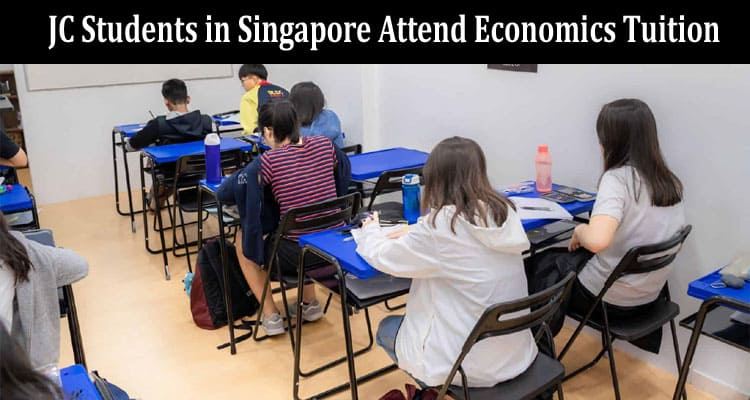Singapore’s education system is renowned for its rigorous standards, aiming to equip students with a comprehensive set of skills and knowledge for their future careers. One intriguing phenomenon is that a significant proportion of Junior College (JC) students, estimated at around 80%, opt to attend economics tuition. This trend reflects a broader context of academic expectations, the unique place of economics in the JC curriculum, and various challenges students face with the subject. This article delves into the reasons behind this trend, exploring the educational landscape, societal pressures, and the intrinsic challenges of the economics syllabus.
The Rigorous Academic Environment
Singapore’s education system is competitive, with a strong emphasis on academic excellence. Junior Colleges play a crucial role in preparing students for university education, acting as a bridge between secondary education and higher learning institutions. Within this context, economics is a popular subject among JC students due to its relevance to many degree programs and its perceived utility in understanding real-world issues. However, the transition from secondary school to the more abstract and analytical nature of JC economics can be challenging for many students. The rigour of the JC economics syllabus, coupled with the high expectations for performance in national exams, such as the GCE Advanced Level examinations, drives many students to seek additional support through tuition.
The Unique Challenges of JC Economics
Economics at the JC level involves a mix of theoretical concepts and their application to real-world scenarios. Students are required to understand complex models, interpret data, and evaluate economic policies. The subject demands not only rote memorization but also critical thinking and analytical skills to apply theoretical knowledge to case studies and current events. This dual requirement often represents a significant hurdle for students accustomed to more straightforward memorization-based subjects. Furthermore, the way economics is taught in JCs can vary significantly, leading to gaps in understanding that tuition aims to fill. Says Mr Kelvin Hong, Chief Tutor of The Economics Tutor, “Many of our students tell us that they get so confused in school but finally achieve an understanding through our economics classes.”
Societal Pressures and Expectations
The societal emphasis on academic success in Singapore cannot be understated. Parents and students alike place a high value on education as a pathway to prestigious careers and social mobility. This societal pressure contributes to the high demand for tuition, as both students and their families seek to ensure that they perform to the best of their abilities. Economics tuition, in particular, is sought after not only for academic support but also as a means to gain a competitive edge in university admissions and future job markets.
The Role of Tuition Centres
Tuition centres in Singapore have evolved to meet the specific needs of JC students, offering specialized programs that target the JC economics syllabus. These centers often employ tutors who are either MOE-trained teachers or subject matter experts with a deep understanding of the examination requirements. They provide structured lessons that focus on exam techniques, essay writing skills, and case study analysis, areas where students commonly struggle. The personalized attention and tailored curriculum offered by these centers allow students to clarify doubts, deepen their understanding, and enhance their exam performance.
The Impact of Digital Learning
The rise of digital learning platforms has also contributed to the prevalence of economics tuition. Online resources, video lectures, and interactive tutorials offer flexible learning options that complement traditional classroom teaching. These digital platforms provide students with the ability to learn at their own pace, revisit challenging concepts, and engage with a wide range of practice questions and mock exams. The accessibility of online tuition has further democratized access to supplementary education, enabling more students to seek help outside the classroom.
Conclusion
The high percentage of JC students in Singapore attending economics tuition is a multifaceted phenomenon, rooted in the country’s competitive educational environment, the challenging nature of the subject, societal pressures, and the proactive approach of students towards their learning. Tuition, whether in-person or online, serves as a vital tool in bridging the gap between classroom teaching and the demands of the national examinations. As Singapore continues to emphasize the importance of a well-rounded education, the role of tuition in supporting students’ academic journeys remains significant. The trend underscores a broader dialogue about the balance between self-directed learning and the need for external support, highlighting the evolving dynamics of education in Singapore.


